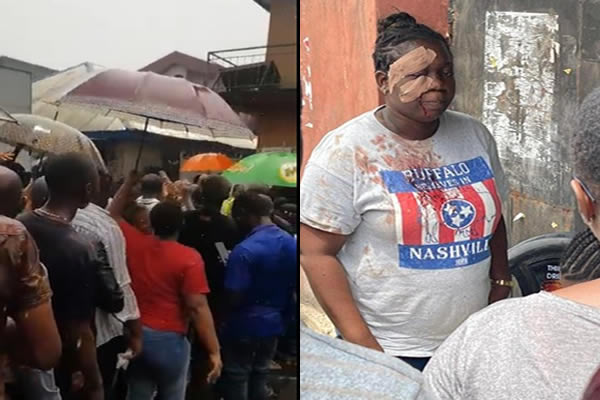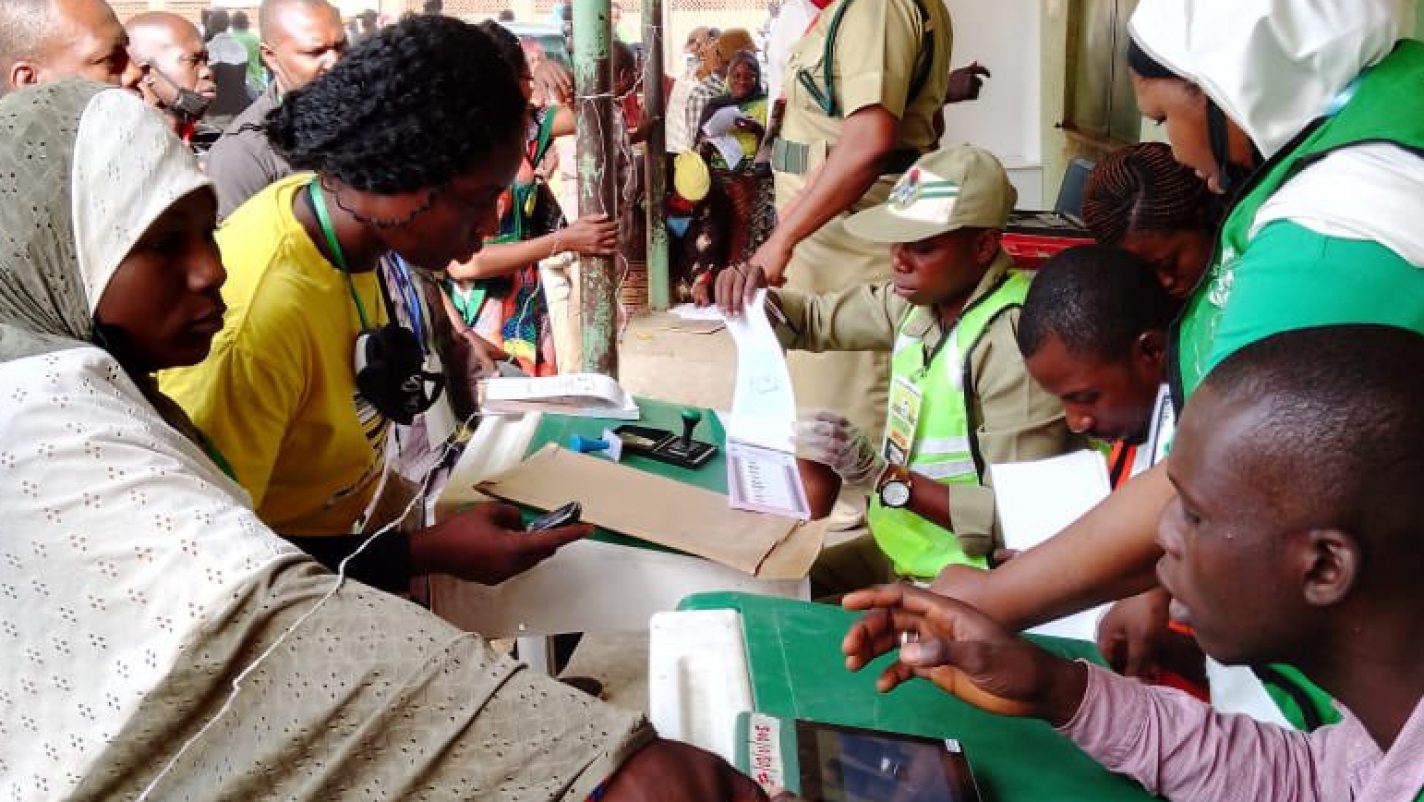Like in previous elections since 1999, Lagos and Kano top other states of Nigeria regarding the number of voters registered by INEC which has risen from 84 million to 96.2 million in total.
INEC’s latest voter statistics states that 12.2 million voters have been registered in the Continuous Voter Registration ( CVR) which closed on Sunday, 31st July, 2022.
INEC revealed that the North-West geopolitical zone, which comprises the seven states of Sokoto, Zamfara, Kano, Kaduna, Katsina, Kebbi and Jigawa, with a total of 22.67 million registered voters, has the highest number of registered voters.
As of the 2019 elections, the North-West had 20.15 million voters.
The latest report however released by INEC showed that 2.5 million new voters registered during the recently concluded continuous voter registration , bringing the total number of registered voters in the zone to 22.67 million. The South-West, which earlier had 16.29 million registered voters, now has 18.3 million, having added 2, 039, 982 new registered voters. The zone comprises Lagos, Ogun, Osun, Oyo, Ekiti and Ondo.
Related Story:
Fresh voters registration hits 10.4m as INEC suspends CVR
INEC staff not arrested anywhere in Lagos— REC
In third position is the South-South which comprises Akwa Ibom, Rivers, Cross River, Bayelsa, Edo and Delta states. The number of registered voters in the zone has risen from 12.8 million to 15.2 million.
The North-Central which is made up of Nasarawa, Kogi, Benue, Niger, Kwara and Plateau, now has 14.1 million voters while the North-East which is made up of Yobe, Borno, Taraba, Adamawa, Bauchi and Gombe, added 1.5 million new voters to reach 12.8 million registered voters.
The South-East, which is the smallest geopolitical zone, and consists of five states – Ebonyi, Enugu, Abia, Anambra and Imo – now has 11.49 million voters while the number of registered voters in the Federal Capital Territory has increased from 1.3 million to 1.5 million.
Lagos maintained its position as the state with the highest number of registered voters, increasing its figure from 6.5 million to 7.1 million. Kano State also maintained its second position, adding 569, 103 new voters to increase its number to 6.02 million.
Kaduna State now has 4.4 million registered voters while Rivers State has now overtaken Katsina as the fourth largest state in terms of voters. While Rivers now has 3.68 million voters, Katsina has 3.57 million.
Some other states with a sizeable number of registered voters are Delta (3.3 million) and Oyo (3.3 million) Also, Ekiti retained its position as the state with the lowest number of registered voters despite rising from 909, 967 registered voters to 1, 034, 911.
A breakdown of INEC’s report also showed that about 71 per cent of the newly registered voters are youths. Of the 12.2 million newly registered voters, about 8.7 million are between the ages of 18 and 34 while about 2.4 million are between ages 35 and 49. Those between ages 50 and 69 are about 856, 017 while about 127, 541 are over 70.
The statistics also showed that more women registered during the latest CVR than men. While 6,224,866 are women, 6,074,078 are men.
Speaking at the post-election training audit for the governorship elections in Ekiti and Osun in Abuja on Monday, the National Commissioner and Chairman of the Board of The Electoral Institute, Prof. Abdullahi Zuru, said youths and women constituted the majority of voters.
Reacting to the development, political science lecturer with the Federal University Lokoja, Dr Aminu Isa said politicians need to wake up to the new reality the seemingly heightened political consciousness is beginning to have on the people.
He added that the 2023 dispensation could be s defining moment as many upsets would be on the cards if ‘smaller’ political parties put their acts together abd tailor their campaigns on data and statistics.
“The indices are there. Currently we are strike. Universities have been closed for more than five months which is one of the longest in the history of ASUU. Inflation rate is higher by the day as life gets more and more difficult.
“Security is worsening. Everybody is now afraid to travel from one place to the other. People are running scared. Jobs are not easy to come by.
“These issues that affect everybody in the country. Do the opposition parties have alternative to these things that people are facing? How do they want to bring succcour to the people? These tbings matter.
“With the current electoral system, the ‘big guys’ are obviously going to depend on vote-buying. So, those who dont have money can encourage the voters to collect their monies and vote for those that sould bring changes to the system and make the country better. If they tailor their messages well, I am sure they would get a look-in from the voters.”

